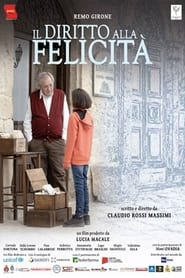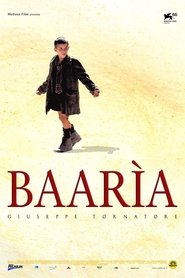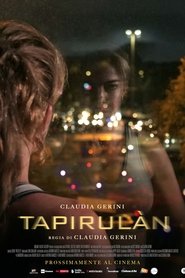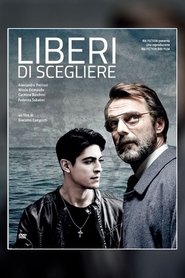detail profile corrado fortuna
Peran Yang Di Mainkan Corrado Fortuna
 Rome The 1980s After the magnum...
Rome The 1980s After the magnum...Fuori 2025
Rome. The 1980s. After the magnum opus The Art of Joy she has been working on for a decade is rejected by the Italian publishing world, writer Goliarda Sapienza commits a desperate theft that costs her her reputation and social position. Incarcerated in Italy’s largest female prison, she finds herself living alongside thieves, junkies, sex workers and revolutionaries. After her release, she continues to meet with these women and over the course of a sweltering summer, a life-changing relationship flowers – a relationship that will reawaken her the desire to live and to write.
 The Right to Happiness centers on...
The Right to Happiness centers on...The Right to Happiness 2023
The Right to Happiness centers on a small used book store in a small plaza in a small town with big vistas, somewhere in Italy. It sounds like a book lover's fantasy, and maybe it is. The bookseller, Libero, knows most of his rather eccentric customers and can barely bring himself to take their money (although fascists pay double). When a young boy, Essien (Didie Lorenz Tchumbu), an émigré from Burkina Faso, happens on the shop, Libero begins lending him books of increasing difficulty. From Pinocchio to Moby Dick, Essien can read as fast as Libero can lend, and the two form a bond over reading and meaning. "Books should be read twice," Libero says. "Once to understand them, and once to think." Life should probably be lived like that too, but the bookseller's name means "free," and freedom is what Libero bequeaths to Essien.
 Prevented from using mobile phones due...
Prevented from using mobile phones due...Non c'è campo 2017
Prevented from using mobile phones due to the non-existent reception of the location, a school trip to a rural town becomes a life-changing experience of friendship and love for a group of Italian kids and their teacher.
 Serena Bruno is an architect who...
Serena Bruno is an architect who...Do You See Me? 2014
Serena Bruno is an architect who studied and got several masters in different countries of the world but she decides to go back to Italy so she can live and work there. She will soon find out that her native country is not as open minded and she will struggle to find a job that she truly loves and is passionate about. Along the way she will meet Francesco a gay man who will help and support her throughout her journey.
 Gilda has long since moved to...
Gilda has long since moved to...Amiche da morire 2013
Gilda has long since moved to a small southern island and earns her living as a prostitute in a context suspended between retrograde traditions and modernity. During one summer, his destiny intersects with that of Olivia and Crocetta, two women from the area, the former a happy wife and the latter an ugly, unlucky wife. The three are forced by fortuitous circumstances to come together to save themselves but their behavior attracts the suspicions of Nino Malachia, a brusque police commissioner who is convinced that they are hiding something.
 Four tales unfold in the Eternal...
Four tales unfold in the Eternal...To Rome with Love 2012
Four tales unfold in the Eternal City: While vacationing in Rome, architect John encounters a young man whose romantic woes remind him of a painful incident from his own youth; retired opera director Jerry discovers a mortician with an amazing voice, and he seizes the opportunity to rejuvenate his own flagging career; a young couple have separate romantic interludes; a spotlight shines on an ordinary man.
 Nothing not her father not the...
Nothing not her father not the...The Purple Sea 2009
Nothing - not her father, not the church - can stop unruly Angela from being with her childhood best friend turned great love, Sara. Based on a true story, Viola di Mare, presents a uniquely engaging portrait of family, community and gender roles in a 19th century Italian village.
 Giuseppe Tornatore traces three generations of...
Giuseppe Tornatore traces three generations of...Baaria 2009
Giuseppe Tornatore traces three generations of a Sicilian family in in the Sicilian town of Bagheria (known as Baarìa in the local Sicilian dialect), from the 1930s to the 1980s, to tell the story of the loves, dreams and delusions of an unusual community.
 When her socialclimbing father is relocated...
When her socialclimbing father is relocated...Caterina in the Big City 2003
When her social-climbing father is relocated from small-town North to his native Rome, 12-year-old Caterina enrolls to his old school, finding herself at sea with an environment where students sort themselves by social class and their parents' political affiliation.
 During a sunny Sicilian summer Tanino...
During a sunny Sicilian summer Tanino...My Name Is Tanino 2002
During a sunny Sicilian summer Tanino has a sweet and tender story with Sally, a young American tourist. But when summer is over, Sally flies back to the States forgetting Tanino and her camera. He instead cannot forget the girl and he decides to go to the States with the excuse of bringing back her the camera and to see the dreamland of any Sicilian. Tanino will discover that dreams don't always match with reality...

 On November 20 2012 Andrea Spezzacatena a boy...
On November 20 2012 Andrea Spezzacatena a boy...

 A tormented Emma runs on her...
A tormented Emma runs on her... A judge decides to dedicate his...
A judge decides to dedicate his...
 The destinies of two families are...
The destinies of two families are... Ettore a young boy in Sicily...
Ettore a young boy in Sicily...